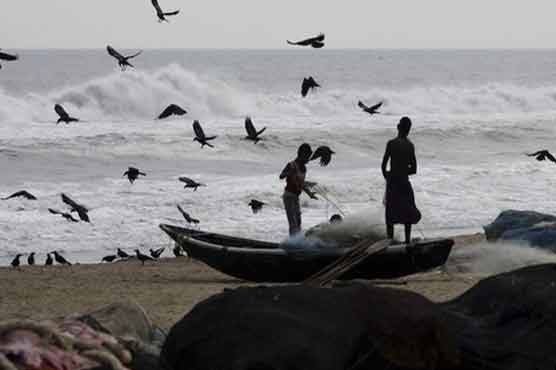Eastern India likely to come in grip of cyclone

Officials cancelled holy day celebrations in coastal Orissa and Andhra Pradesh states.
BHUBANESWAR (AP) More than 40,000 villagers were evacuated from coastal areas along India s eastern seaboard and state officials reached out to the military for help as they prepared Friday for a massive cyclone spinning in the Bay of Bengal.
Officials cancelled holy day celebrations in coastal Orissa and Andhra Pradesh states, with forecasters saying Cyclone Phailin will hit the region Saturday evening.
The Indian Meteorological Department warned that Phailin was a "very severe cyclonic storm" that was was expected to hit with maximum sustained winds of 210-220 kph (130-135 mph). The department warned the storm could cause large-scale disruption of power and communication lines, hit rail and road traffic with extensive flooding, and cause extensive damage to crops.
Using trucks and buses, authorities evacuated 40,000 people from 40 villages to government-run shelters, schools and buildings in five districts of Orissa state, said Surya Narayan Patra, the state revenue and disaster management minister.
Patra said authorities plan to take another 100,000 people to safer areas before the cyclone hits the region.
"No one will be allowed to stay in mud and thatched houses in the coastal areas," he said.
Authorities also planned to shift thousands of people and cattle to safer areas in neighboring Andhra Pradesh state, the state government statement said.
Officials have been stockpiling emergency food supplies, and setting up shelters for people expected to flee the heavy winds and rains.
Weather forecasters had been predicting waves up to 7 feet (2 meters), but warned that the storm has been gaining strength and its impact could be severe.
The Bay of Bengal has been the scene of the some of the deadliest storms in recent history. A 1999 Orissa cyclone killed 10,000 people.


